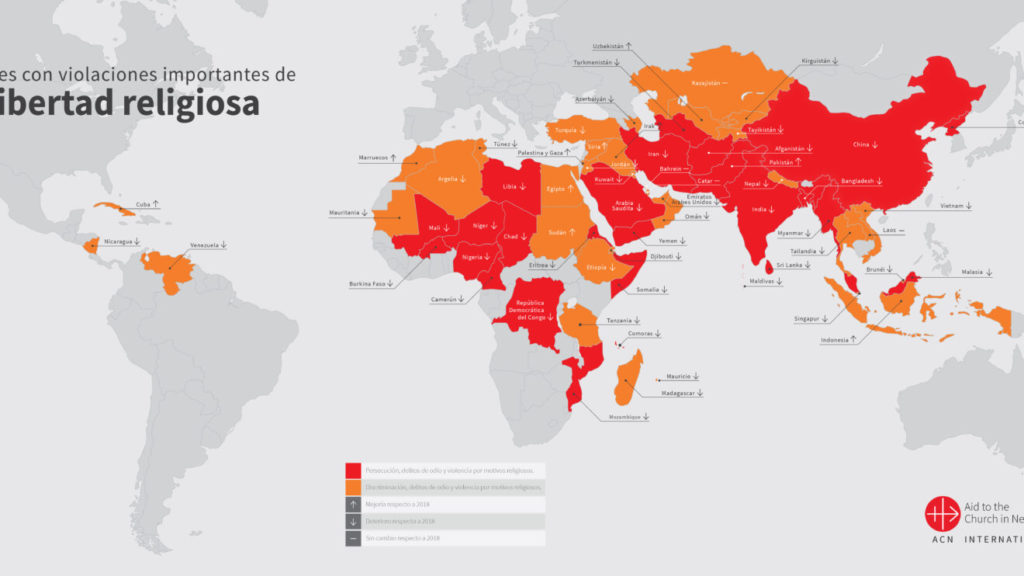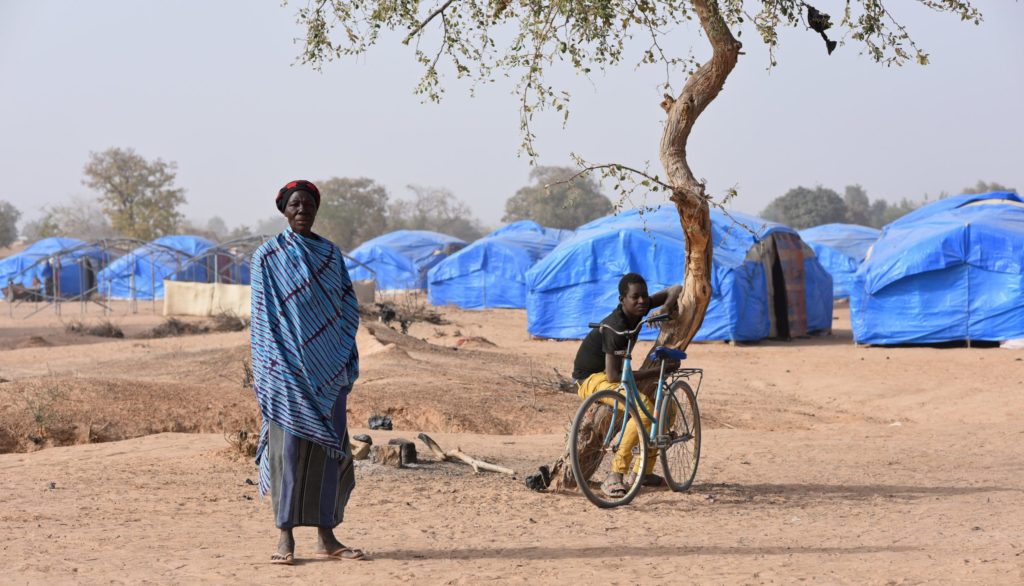Religious freedom in the world is still a reality to be achieved. This is demonstrated by the Religious Freedom in the World Report presented by Aid to the Church in Need. Since 1999, Aid to the Church in Need has been publishing this report at the international level, which analyzes the degree of compliance or respect for this human right in all countries of the world (196) and for all religions.
A total of 30 authors and independent experts, research teams in universities and/or study centers from different continents dedicated to international relations have analyzed, during the last two years, each country in the world following objective parameters and precise methodology. It consists of more than 700 pages and is translated into 6 languages.
Freedom of religion is enshrined in Article 18 of the Universal Declaration of Human Rights: "Everyone has the right to freedom of thought, conscience and religion; this right includes freedom to change his religion or belief, and freedom, either alone or in community with others and in public or private, to manifest his religion or belief in teaching, practice, worship and observance".
For yet another year, this global report shows a worsening respect for the right to religious freedom. The number of people and countries where believers of different religions are discriminated against or persecuted is increasing, although Christians continue to be the most targeted group.
A worrying situation
In the presentation of the Report, the dramatic situation of the right to religious freedom in the world was commented on: religious freedom is violated in 62 countries. The violation occurs through discrimination in 36 of them and through direct persecution of religious freedom, often leading to murder in 26 countries. This means that 67% of the world's population lives in countries where religious freedom is violated.
DATO
67%of the world's population lives in countries where religious freedom is violated.
The main territories where this violation of religious freedom exists are countries on the African or Asian continent. The apparent improvement of conflicts in the Middle East has caused radical Islamic groups to move to the African continent. There are extreme situations and massive exoduses of refugees who, in addition, have to face poverty and COVID-19. This is the case in Burkina Faso, Central African Republic, Nigeria and Mozambique.
The situation of religious freedom has not improved at all in countries as important as China or India, great world powers and the most populated countries in the world. Alongside them are North Korea, Afghanistan and Pakistan, among other Asian countries.
The report also highlights that secularism and aggressive intolerance towards religion is spreading in the West. Aggressions against people, religious symbols and temples are reaching a worrying level. In addition, some governments are adding even more restrictive measures for liturgical celebrations than those imposed by the coronavirus, restricting freedom of worship and discriminating against Catholic believers.

Who is attacking religious freedom?
According to the report, persecution comes mainly from three groups: authoritarian governments, Islamist extremism and ethno-religious nationalist groups.
The 2018 report manifested indications of violations of religious freedom that have accelerated and expanded to a worrisome situation today: where systematic and egregious attacks are coming from governments, whether in China or North Korea, as well as from international terrorist groups such as Boko Haram or the so-called Islamic State and other fundamentalist groups. These situations have been exacerbated by the COVID-19 pandemic.
Jihadism aspires to become a continental caliphate.
Religious Freedom in the World ReportAid to the Church in Need
In these Asian countries, ethno-religious nationalism, which displaces other religious minorities, is more problematic.
It is striking that in 30 countries, murders have been committed since mid-2018 because of faith. In Latin America, attacks on churches and places of worship have increased. Covid-19 has also led in some cases to a restriction of religious freedom, due to restrictions imposed by national governments. For example, restricting worship in some places, and in some cases blaming certain religious groups for the spread of the virus.
Forms of modern tyranny
Pope Francis stated as early as 2015 that "in a world in which various forms of modern tyranny seek to suppress religious freedom, or, as I said earlier, to reduce it to a subculture without the right to a voice and vote in the public square, or to use religion as a pretext for hatred and brutality, it is necessary that the faithful of the various religious traditions unite their voices to cry out for peace, tolerance, respect for the dignity and rights of others."
It is necessary for the faithful of the various religious traditions to unite their voices to cry out for peace, tolerance, respect for the dignity and rights of others.
Pope Francis’
Hope factors
The main conclusion of the report is that religious freedom is violated in practically one third of the world's countries (31.6%) in which two thirds of the world's population live.
As factors of hope, we note a greater global awareness and greater concern in the media for reporting and denouncing violations of religious freedom. There is also greater social awareness and the admirable example of thousands of people around the world who are able to put their religious beliefs before the difficulties they encounter in living their faith in freedom.
Aid to the Church in Need is a Catholic organization founded in 1947 to help war refugees. Recognized as a pontifical foundation since 2011, ACN is dedicated to the service of Christians around the world through information, prayer and action, wherever they are persecuted or oppressed or suffer material needs. ACN supports an average of 6,000 projects in 150 countries each year thanks to private donations, as the foundation receives no public funding.








